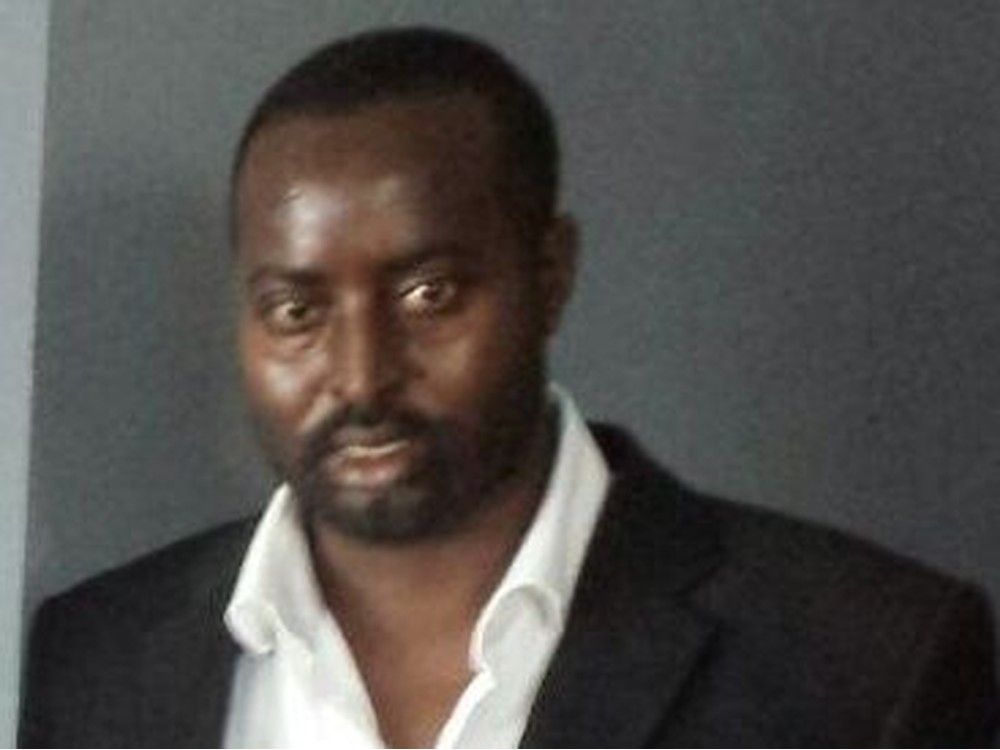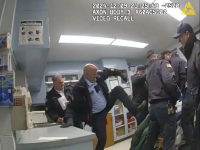Inquest jury rules Adirahman Abdi's 2016 death a homicide
The 38-year-old died day after being arrested in a violent altercation with two Ottawa Police officers
Author of the article:Sonja Puzic, The Canadian Press
Published Dec 17, 2024 • Last updated 13 hours ago • 3 minute read
The jury at a coroner’s inquest has deemed the 2016 death of an Ottawa man after his violent arrest a homicide, as it made more than 50 recommendations Tuesday aimed at preventing similar deaths in the future.
Abdirahman Abdi, 38, died in July 2016 after police responded to a 911 call reporting that a man was groping women outside a coffee shop in Ottawa. The inquest heard that Abdi appeared to be in a mental-health crisis at the time and that he suffered blows to his head during the arrest.
Inquest jurors are required to make a finding on the cause of death, but that carries no legal liability.
The inquest was mandatory under the law because Abdi was injured while in police custody. Its purpose was to examine the circumstances of his death, not assign blame.
After hearing several weeks of testimony from experts and key witnesses — including the police officer who was acquitted of criminal charges in the case — the inquest jury came back Tuesday evening with numerous recommendations for the Ottawa police force, its board and other authorities.
The first recommendation for the Ottawa Police Service was to establish a mental-health advisory council that would provide guidance on police interactions with people who have mental-health issues. Any mental-health strategy should involve input from expert organizations and people with lived experience, the jury said.
The jury’s recommendations include reviewing and improving police use-of-force training and de-escalation strategies, as well as addressing anti-Black racism and biases toward people with mental-health struggles.
They also call for more trauma-informed mental-health training for police officers, call takers and dispatchers, as well as better tracking and analysis of police use of force.
The lawyer representing Abdi’s family said that, while they appreciated the jury’s extensive and “well-intended” recommendations, they were “too little, too late.”
“Eight years is far too long to wait for change,” Lawrence Greenspon said in an interview Tuesday night.
“It shouldn’t take an inquest eight years later to actually effect the change that’s needed and that has been needed for such a long time.”
Greenspon said the jury’s finding on Abdi’s manner of death was no surprise, given that the definition of homicide in a coroner’s inquest is much different than in a criminal trial.
“All you have to achieve in an inquest is to show that it wasn’t accidental, it wasn’t suicide, it wasn’t undetermined and it was caused by somebody other than the deceased,” he said.
After hearing evidence from pathologists, the jury found Abdi’s cause of death to be a combination of post-cardiac arrest brain injury following blunt trauma, exertion and underlying coronary artery disease.
An Ontario judge found Ottawa police Const. Daniel Montsion not guilty of manslaughter and other charges in October 2020, ruling that the prosecution hadn’t proved beyond a reasonable doubt that the blows Abdi received during the arrest resulted in his death.
Montsion, who testified at the inquest last month, said that deciding whether to use force during an arrest didn’t take into account a person’s mental health and that he was trying to control Abdi before bringing him into custody.
The inquest also heard from Ottawa police Deputy Chief Steven Bell and experts on police use of force, among others.
Bell told the inquest last week that Ottawa police had made changes in the years since Abdi’s death, including improving training on de-escalation, but acknowledged the force had “much more work to do.”
Greenspon said Abdi’s family settled a civil lawsuit with Ottawa police in 2020, with an agreement that the force would implement a mental-health response strategy.
“The family has wanted change for more than eight years. The police agreed to change more than four years ago and now they have a jury recommending that change be considered,” he said.
“There’s nothing else that the family can do at this point.”
Greenspon, in a closing argument on Monday, had urged the jury to find Abdi’s manner of death as a homicide. The inquiry heard from neighbours, police officers, Abdi’s psychiatrists, paramedics and more, including two pathologists who had slightly different findings in the cause of death.
With files from Marlo Glass, Postmedia

 torontosun.com
torontosun.com
The 38-year-old died day after being arrested in a violent altercation with two Ottawa Police officers
Author of the article:Sonja Puzic, The Canadian Press
Published Dec 17, 2024 • Last updated 13 hours ago • 3 minute read
The jury at a coroner’s inquest has deemed the 2016 death of an Ottawa man after his violent arrest a homicide, as it made more than 50 recommendations Tuesday aimed at preventing similar deaths in the future.
Abdirahman Abdi, 38, died in July 2016 after police responded to a 911 call reporting that a man was groping women outside a coffee shop in Ottawa. The inquest heard that Abdi appeared to be in a mental-health crisis at the time and that he suffered blows to his head during the arrest.
Inquest jurors are required to make a finding on the cause of death, but that carries no legal liability.
The inquest was mandatory under the law because Abdi was injured while in police custody. Its purpose was to examine the circumstances of his death, not assign blame.
After hearing several weeks of testimony from experts and key witnesses — including the police officer who was acquitted of criminal charges in the case — the inquest jury came back Tuesday evening with numerous recommendations for the Ottawa police force, its board and other authorities.
The first recommendation for the Ottawa Police Service was to establish a mental-health advisory council that would provide guidance on police interactions with people who have mental-health issues. Any mental-health strategy should involve input from expert organizations and people with lived experience, the jury said.
The jury’s recommendations include reviewing and improving police use-of-force training and de-escalation strategies, as well as addressing anti-Black racism and biases toward people with mental-health struggles.
They also call for more trauma-informed mental-health training for police officers, call takers and dispatchers, as well as better tracking and analysis of police use of force.
The lawyer representing Abdi’s family said that, while they appreciated the jury’s extensive and “well-intended” recommendations, they were “too little, too late.”
“Eight years is far too long to wait for change,” Lawrence Greenspon said in an interview Tuesday night.
“It shouldn’t take an inquest eight years later to actually effect the change that’s needed and that has been needed for such a long time.”
Greenspon said the jury’s finding on Abdi’s manner of death was no surprise, given that the definition of homicide in a coroner’s inquest is much different than in a criminal trial.
“All you have to achieve in an inquest is to show that it wasn’t accidental, it wasn’t suicide, it wasn’t undetermined and it was caused by somebody other than the deceased,” he said.
After hearing evidence from pathologists, the jury found Abdi’s cause of death to be a combination of post-cardiac arrest brain injury following blunt trauma, exertion and underlying coronary artery disease.
An Ontario judge found Ottawa police Const. Daniel Montsion not guilty of manslaughter and other charges in October 2020, ruling that the prosecution hadn’t proved beyond a reasonable doubt that the blows Abdi received during the arrest resulted in his death.
Montsion, who testified at the inquest last month, said that deciding whether to use force during an arrest didn’t take into account a person’s mental health and that he was trying to control Abdi before bringing him into custody.
The inquest also heard from Ottawa police Deputy Chief Steven Bell and experts on police use of force, among others.
Bell told the inquest last week that Ottawa police had made changes in the years since Abdi’s death, including improving training on de-escalation, but acknowledged the force had “much more work to do.”
Greenspon said Abdi’s family settled a civil lawsuit with Ottawa police in 2020, with an agreement that the force would implement a mental-health response strategy.
“The family has wanted change for more than eight years. The police agreed to change more than four years ago and now they have a jury recommending that change be considered,” he said.
“There’s nothing else that the family can do at this point.”
Greenspon, in a closing argument on Monday, had urged the jury to find Abdi’s manner of death as a homicide. The inquiry heard from neighbours, police officers, Abdi’s psychiatrists, paramedics and more, including two pathologists who had slightly different findings in the cause of death.
With files from Marlo Glass, Postmedia

Abdirahman Abdi inquest: Jury rules his 2016 death a homicide, issues 57 recommendations
Jurors also issued 57 recommendations aimed at preventing more deaths in similar altercations with police.




